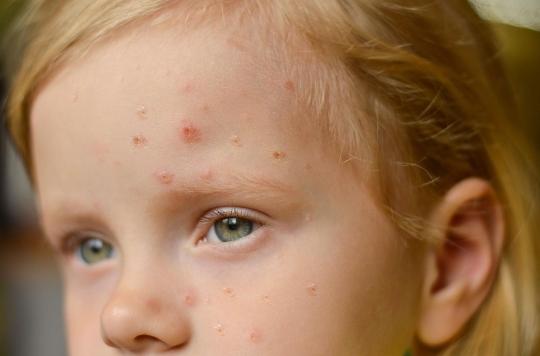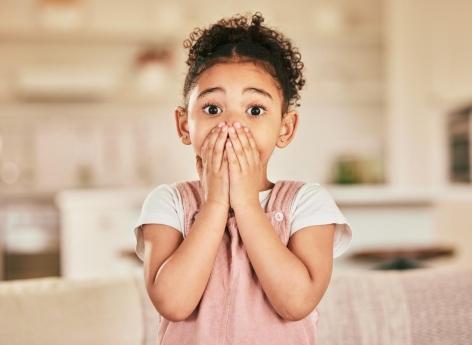While monkeypox had previously only affected adults, a child was infected. Health authorities remain reassuring about this virus.

- The Ile de France regional health agency has reported the first case of monkey pox affecting a child in the country.
- For now, no preventive treatment or vaccination is recommended by health authorities for children.
A primary school student in Ile-de-France was infected with monkeypox but “he shows no signs of seriousness“, assured the Regional Health Agency (ARS) by press release on Saturday evening.
Superinfections
In West Africa, where the disease is endemic, cases of monkeypox are more serious among children, particularly because of secondary infections which may be responsible for mortality.
Indeed, children tend to scratch more pimples caused by the disease than adults and therefore experience more complications, which are poorly supported in countries where access to care is limited, unlike France.
In children, pregnant women and immunocompromised people, however, monkeypox can be complicated in several ways:
– major eruption (more than 100 vesicles) which can sometimes generate superinfections or generalized infections,
– digestive or ENT problems (with local compressions),
– eye damage (corneal damage),
– neurological complications (encephalitic signs),
– serious forms at the pulmonary level (pneumopathy).
Chain of contact
The ARS Île-de-France and the teams of Public Health France indicate that they have “immediately began the investigations in order to trace the child’s chain of contacts as quickly as possible. A probable case has been identified within the same siblings“.
Monkeypox is transmitted by contact with lesions that may appear on the genital mucous membranes and in this case, it takes place during sexual intercourse – which would explain the cases declared in adult men (the latest data from Public Health France show state of 330 cases).
But the lesions can also appear on the hands, the feet, sometimes the face and in the mouth: it is possible to be contaminated by touching the pimples and the lesions of another person.
Thus, the characteristics and the contagiousness of this disease mean that it can also affect children in a family setting by sharing linens, living rooms, cutlery, in particular.
Recommendations
Measures have been taken with National Education and a message has been sent to the parents of children who are at-risk contacts at the school attended by the child, in order to follow the following recommendations:
– Monitor the appearance of symptoms (fever, rash) and call 15 if necessary;
– To be offered a consultation in order to have the child benefit from a vaccination if it is deemed necessary by the doctor;
– In the absence of symptoms, and in the state of knowledge, there is no known risk of contagion.
No measure is therefore necessary for the child (neither isolation nor adaptation of activities) nor for the other members of the family.
Not a global health emergency
Tedros Adhanom Ghebreyesus the head of the World Health Organization (WHO) estimated on Saturday June 26 that the outbreak of this disease was not a global health emergency :
“For the world, the event does not constitute a public health emergency of international concern, which is WHO’s highest level of alert.” he indicated.
The health authorities recall that “cases in France and Europe are mild” and “the risk of transmission is assessed as low”.
“Its mortality rate remains generally low“, assures Public Health France since it “is less than 10% in cases observed worldwide“.















